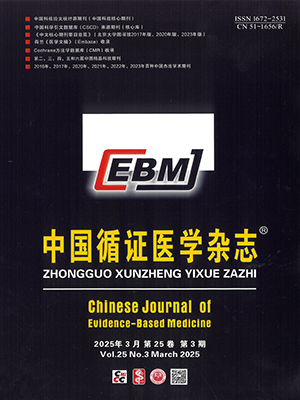| 1. |
中共中央国务院. 中共中央国务院关于深化医药卫生体制改革的意见. 中国药房, 2010, 21(4): 289-294.
|
| 2. |
Medhanyie AA, Spigt M, Yebyo H, et al. Quality of routine health data collected by health workers using smartphone at primary health care in Ethiopia. Int J Med Inform, 2017, 101: 9-14.
|
| 3. |
Schoen J, Mallett JW, Grossman-Kahn R, et al. Perspectives and experiences of community health workers in Brazilian primary care centers using m-health tools in home visits with community members. Hum Resour Health. 2017, 15(1): 71.
|
| 4. |
Svoronos T, Mjungu D, Dhadialla P, et al. CommCare: automated quality improvement to strengthen community-based health. Available from: https://www.researchgate.net/publication/268198360_CommCare_Automated_Quality_Improvement_To_Strengthen_Community-Based_Health.
|
| 5. |
吕姝, 景秀红, 吴擢春. 定性研究与定量研究相结合的方法在卫生领域中的应用. 医学与社会, 2013, 26(12): 21-24, 27.
|
| 6. |
Creswell JW. A concise introduction to mixed methods research. California: SAGE Publication, 2015.
|
| 7. |
张敏, 罗梅芬, 张艳. 国内外移动医疗用户采纳行为的系统综述−知识基础, 影响因素与前沿展望. 现代情报, 2018, (8): 154-162.
|
| 8. |
Bawack RE, Kala Kamdjoug JR. Adequacy of UTAUT in clinician adoption of health information systems in developing countries: The case of Cameroon. Int J Med Inform, 2018, 109: 15-22.
|
| 9. |
Zhang Y, Liu C, Luo S, et al. Factors influencing patients' intentions to use diabetes management apps based on an extended unified theory of acceptance and use of technology model: web-based survey. J Med Internet Res, 2019, 21(8): e15023.
|
| 10. |
Venkatesh V, Morris MG, Davis GB, et al. User acceptance of information technology: toward a unified view. MIS Quarterly, 2003, 27(3): 425-478.
|
| 11. |
任聪. 基于TAM和感知风险理论的移动医疗服务用户采纳模型及其实证研究. 武汉: 华中科技大学, 2017.
|
| 12. |
陶方金. 基于UTAUT与感知风险性的PaaS使用意愿影响因素研究. 合肥: 合肥工业大学, 2016.
|
| 13. |
Wright E, Marvel J. Electronic health records: postadoption physician satisfaction and continued use. Health Care Manag (Frederick), 2012, 31(3): 259-267.
|
| 14. |
Parthasarathy M, Bhattacherjee A. Understanding post-adoption behavior in the context of online services. Information Systems Research, 1998, 9(4): 362-379.
|
| 15. |
Oliver RL. A cognitive model of the antecedents and consequences of satisfaction decisions. J Market Res, 1980, 17(4): 460-469.
|
| 16. |
Karahanna E, Agarwal R, Angst CM. Reconceptualizing compatibility beliefs in technology acceptance research. MIS Quarterly, 2006, 30(4): 781-804.
|
| 17. |
Maillet É, Mathieu L, Sicotte C. Modeling factors explaining the acceptance, actual use and satisfaction of nurses using an Electronic Patient Record in acute care settings: an extension of the UTAUT. Int J Med Inform, 2015, 84(1): 36-47.
|
| 18. |
吴明隆. 结构方程模型: AMOS的操作与应用. 重庆: 重庆大学出版社, 2010.
|
| 19. |
Gu D, Yang X, Li X, et al. Understanding the role of mobile internet-based health services on patient satisfaction and word-of-mouth. Int J Environ Res Public Health, 2018, 15(9): 1972.
|
| 20. |
Yuan S, Ma W, Kanthawala S, et al. Keep using my health apps: discover users' perception of health and fitness apps with the UTAUT2 model. Telemed J E Health, 2015, 21(9): 735-741.
|




